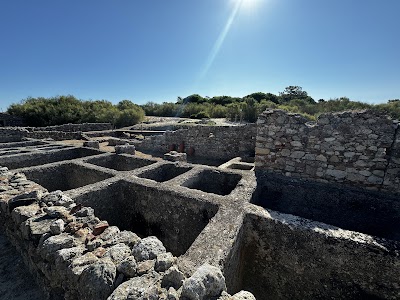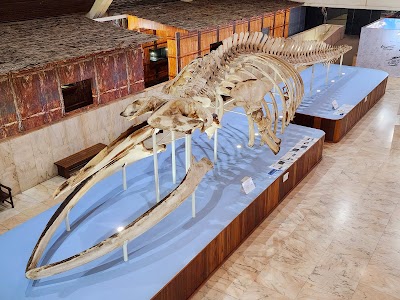Fort of Sabha (حصن سبها)
Overview
The Fort of Sabha, nestled in the heart of the Sabha District in Libya, is a historical gem that offers an enchanting glimpse into the region's rich past. Perched majestically on a hill, this formidable structure has served as a strategic stronghold for centuries, making it an essential destination for travelers eager to delve into Libya's diverse heritage.
Tracing its origins back to the medieval period, the fort's exact construction date remains a topic of debate among historians. It is believed to have been built by Arab Berbers during their expansion across North Africa, functioning both as a military fortification and a residence for local rulers. Over the years, the fort was expanded and fortified to meet the demands of various dynasties that governed the region, each leaving its mark on this enduring landmark.
One of the most significant chapters in the fort's history occurred during the Ottoman era. In the 16th century, as the Ottoman Empire extended its influence over Libya, the Fort of Sabha underwent substantial reinforcement to serve as a garrison and administrative center. Recognizing its strategic importance for controlling the vast desert territories and trade routes, the Ottomans left behind architectural features still visible today, such as arched doorways and intricately decorated ceilings.
As you wander through the fort, you'll encounter numerous key features that underscore its historical importance. The fort’s thick stone walls rise dramatically above the surrounding landscape, a testament to its defensive capabilities. These walls have withstood the test of time and numerous conflicts, silently witnessing the region's turbulent history. The strategic design of the fort offers panoramic views of the Sabha area, allowing defenders to spot approaching enemies from afar.
Inside, a labyrinth of chambers, tunnels, and courtyards awaits exploration. These spaces served various purposes, from storing provisions to housing soldiers and providing refuge for the local population during sieges. The central courtyard, particularly impressive in its scale, is surrounded by high walls and lined with rooms that once functioned as barracks and administrative offices.
One of the fort's most intriguing aspects is its role in the trans-Saharan trade routes. For centuries, it served as a crucial stopover for caravan traders crossing the vast Sahara Desert. Merchants from North Africa, the Middle East, and sub-Saharan Africa converged here, exchanging valuable goods such as gold, salt, spices, and textiles. This bustling trade not only facilitated economic exchanges but also enriched the cultural tapestry of the region, further enhancing the fort's significance.
In the 20th century, the Fort of Sabha continued to play a pivotal role during Libya's struggle for independence. It served as a strategic military post during the Italian colonization and later during the Libyan resistance against colonial rule. Its resilience has made the fort a symbol of national pride and a reminder of the region's enduring spirit.
Today, the Fort of Sabha stands as a well-preserved monument, inviting visitors to step back in time and experience Libya's rich history. Guided tours are available, offering in-depth insights into the fort's past and its significance in the broader context of Libyan and North African history. The fort's museum showcases a collection of artifacts, including weapons, tools, and trade goods, providing visitors with a tangible connection to the past.
For photography enthusiasts, the fort presents countless opportunities to capture stunning views of the Sahara Desert and the city of Sabha below. The interplay of light and shadow on the ancient stone walls creates a mesmerizing visual experience, particularly during sunrise and sunset.
In conclusion, the Fort of Sabha is a remarkable destination that embodies the historical depth and cultural richness of Libya. Its strategic significance, architectural grandeur, and enduring legacy make it a compelling site for foreign tourists. Whether you're a history enthusiast, an adventure seeker, or simply looking to immerse yourself in the heritage of North Africa, a visit to the Fort of Sabha promises to be an unforgettable experience.




